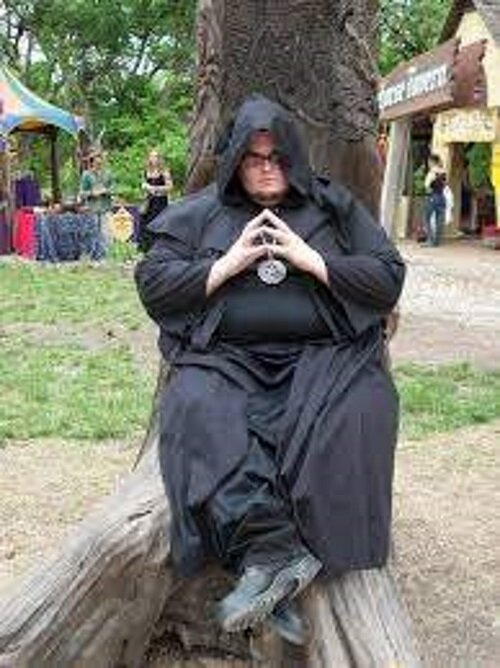By Nick Olivo
If you’re a Dungeon Master, you need to give your players a reason to go along with the adventure you’re running. Every now and then the party can just take the quest from the random old man in the tavern, but if that’s how you introduce every adventure, your players will get bored.
To really get the players invested, we need to make it personal. We need what’s going on in the world to matter to the PCs, and we do that by mining their backstories.
Some players will make this easy for you. They might come up with a detailed backstory on their own, and you can work with them to bring elements of that into the game. But other players may not be up for coming up with something like that, and you don’t want to leave them out. And a great place to start is their PC’s background.
All the backgrounds in D&D 5e offer mechanical bonuses, but they also provide a wealth of opportunities for you as the DM. Let’s take a look at each of the backgrounds included in the Player’s Handbook and come up with some possibilities for each one.
Acolytes served gods, and typically pantheons run with diametrically opposed deities. If the PC served a god of healing, introduce a cult from the goddess of disease. If the PC served a goddess of the harvest, introduce a cult from the god of famine.
Charlatans have a rich set of possibilities. The fallout from people they’ve scammed is the biggest one. Have someone recognize them and call out the city watch. Or have one of their criminal contacts reach out to them because they need help handling a mark, and that mark turns out to be a member of the party. Inter-party conflict is always lots of fun, provided your group is mature enough to handle it.
Criminals may get jobs from Thieves’ Guilds, or if they’re an independent, the Guild may harass them into joining. The Guild might even frame the PC for things they didn’t do, to have the PC serve as an example to others. Or they might blackmail the PC into doing jobs for them, lest the guild expose them to the rest of the world.
Entertainers have lots of possibilities. Think about Rock Stars. They have fans, groupies, and occasionally someone gets obsessed with them. Maybe willing to kill for them. Maybe someone is driven by a desperate need to become them…
Folk Heroes have a Defining Event as part of their backstory. Grab on to that. If the PC stole from a corrupt merchant, have that merchant open a shop in the next town that the party reaches. If they received a blessing from a celestial, have an infernal creature mark that folk hero for destruction.
Guild Artisans – No matter what guild business the PC was part of, guild secrets make for great adventure hooks. Maybe the PC needs to steal something from a rival guild, or sabotage a rival’s efforts.
Hermits seem like tough ones on the surface, but their Discovery feature actually makes them quite easy. What was it that the PC discovered during their isolation? A truth about the gods may make the gods want to silence the PC. An evil cult may want the relic they found, or a map to the ancient ritual site they discovered.
Nobles are easy – the family the PC comes from has business rivals and skeletons in the closet. The PC may uncover that their grandfather conducted shady dealings with dark forces in exchange for business success, and now that dark force has come calling for someone to pay the check.
Outlanders may have come across temples to forgotten gods, or have contacts among the poachers who hunt in forbidden places. And being able to always know the layout of terrain and settlements is invaluable to smuggling, whether it’s illicit goods or freeing slaves.
Sages know things, and sometimes the things they know get them killed. An NPC scholar sends one of the PCs a cryptic note asking them to meet the NPC to discuss a discovery they’ve made, only to have the NPC found dead and now the PCs have to solve their murder.
Sailors will have a crew that they once served with. Have the former crew turn to piracy, and then give the PCs a mission to bring them to justice. Or the ship they sailed on is the latest to have sunk under suspicious circumstances, and the PCs need to investigate sea monster attacks or a Bermuda Triangle like phenomenon.
Soldiers once belonged to a unit or company, and maybe now the last member of the enemy forces they vanquished is systematically killing all the members of the PC’s old unit one by one, until the PC becomes the final target.
Urchins will have had dealings with gangs, possibly contact with criminal organizations, but will also know some good people who showed them kindness as well. Maybe the kind old baker who gave them bread and kept them from starving has been arrested for a crime they didn’t commit, and now it’s up to the PC to save them from the gallows.
These are just a handful of suggestions you can use in your games, but it’s easy to see how you can turn a PC’s backstory into an adventure. Several of the things mentioned (coming up with the Hermit’s Discovery, or the Soldier’s former company) should be done in conjunction with the players, while others, like the obsessed groupie for the entertainer, can be just the DM. But by making things personal, you’re ensuring the players will be more vested in what’s going on, and that will lead to a richer and more enjoyable game overall.





